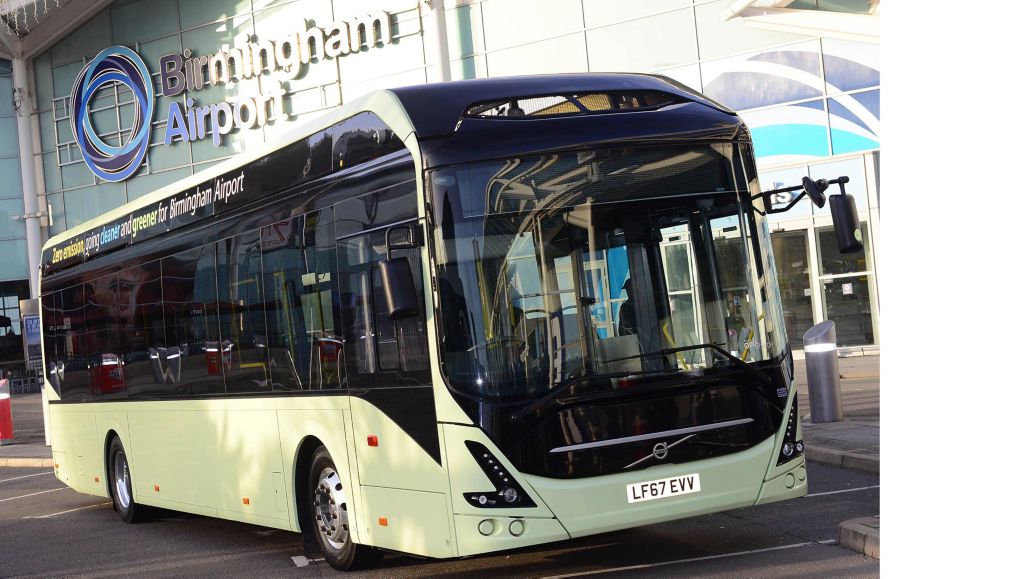Volvo receives order for six electric buses to Birmingham Airport in the UK


The order is the result of a review undertaken by Birmingham Airport into its future vehicle provision. This has led to plans to provide a truly ‘green’ transport system, while at the same time making savings on energy and life cycle costs. The buses are set to go into service in November 2019.
Key to Volvo Buses being awarded the contract was the technical and service support being readily available on a local level, accessible via the Volvo dealership network.
Due to the requirement for 24/7 operation, each of the Volvo 7900 Electric buses will be recharged en route using the opportunity charging pantograph system. Charging takes up to six minutes, giving flexibility and enabling continuous operation without having to spend time in the depot being ‘topped up’ with power.
Initially two pantographs will be installed outside of the airport terminal with plans to install further pantographs around the bus route if the services are expanded. In addition, ‘plug in’ charging points will also be available in the Airport’s coach park. In the future, these charging points will be made available to other bus operators who adopt electric vehicles. The buses will operate on all car park routes around the airport, with the longest being 7.5 km.
The Volvo 7900 Electric has been involved in a series of trials at locations around the UK, including Greater Manchester, Cardiff, Liverpool and Heathrow Airport. A fleet of eight buses of the same specification have recently entered full service in Harrogate, all using the same pantograph technology.
Nick Barton, CEO at Birmingham Airport said: “This partnership is a key milestone for us. We are always investigating new and innovative ways to reduce our carbon emissions and through the partnership with Volvo Bus UK, we can do just this.
“We have made significant customer service improvements across the airport to increase capacity and improve passenger experience, with the vision of positioning Birmingham as Europe’s leading Airport. The electric buses form part of this vision, not to mention their sustainability benefits being ultra-low emission.”
“Since 2012 the Airport has reduced its CO2 per passenger by 20% per passenger. Implementing the six electric buses will work towards lowering our CO2 per passenger even further which is just fantastic.”
Nick Page, Managing Director of Volvo Bus UK & Ireland, said: “It is very exciting that the Volvo 7900 Electric has been chosen for Birmingham Airport in support of its ambition to provide the best possible environmentally friendly bus service for airport customers and stakeholders alike.”
The Volvo 7900 Electric provides up to 80% lower energy consumption than an equivalent sized diesel bus. It is a two-axle bus with electric motor and four high capacity 200 kWh Lithium-ion batteries and offers zero tailpipe emissions.
Volvo’s fully electric buses have previously been ordered by cities in countries such as Denmark, Sweden, Luxemburg, The Netherlands, Norway and Poland. In addition to the all-electric Volvo 7900 Electric, the Volvo Buses range of electrified vehicles includes hybrid buses and electric hybrid (plug-in hybrid) models. All told the company has sold more than 4000 electrified Volvo buses the world over.